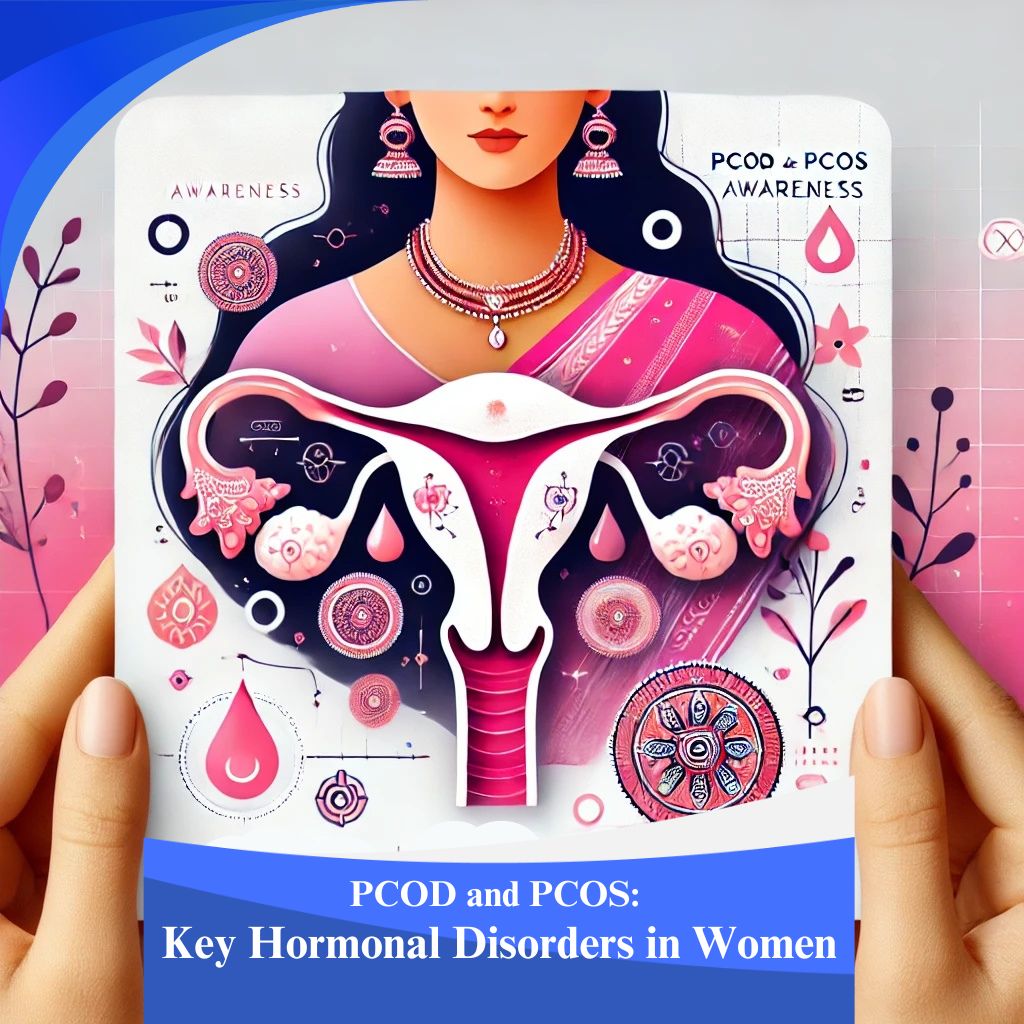Introduction:
Polycystic Ovary Disease (PCOD) and Polycystic Ovary Syndrome (PCOS) are two common hormonal disorders affecting millions of women worldwide. While these conditions share similar symptoms and names, they have distinct differences in terms of causes, effects, and management. Understanding these differences is essential for effective diagnosis and treatment. This article explores the nuances of PCOD and PCOS, their symptoms, causes, and management strategies to help women make informed decisions about their health.
To learn more about this disease, chat with us at +91-9090-960353.
What is PCOD?
Symptoms of PCOD
• Irregular menstrual cycles
• Weight gain
• Excessive hair growth (hirsutism)
• Acne and oily skin
• Hair thinning or loss
Causes of PCOD:
• Poor lifestyle choices
• Unhealthy diet
• High levels of androgens (male hormones)
• Family history of hormonal disorders
Treatment for PCOD:
• Regular exercise and a balanced diet
• Medications to regulate menstrual cycles
• Hormonal therapy in severe cases
• Stress management techniques
Read Also: Common Causes of Hernia and Its Treatment at Vivekanand Hospital
What is PCOS?
Symptoms of PCOS:
• Irregular or absent periods
• Severe acne
• Excessive hair growth
• Obesity
• Difficulty in conceiving
Causes of PCOS:
• Insulin resistance
• High levels of androgens
• Genetic predisposition
• Chronic inflammation
Treatment for PCOS:
• Medications for insulin sensitivity
• Birth control pills to regulate hormones
• Weight management through diet and exercise
• Fertility treatments for women trying to conceive
PCOD vs. PCOS: Key Differences
Nature of the Condition:
• PCOD: A disorder where eggs develop into cysts within the ovaries.
• PCOS: A syndrome that affects the entire metabolic system.
Severity:
• PCOD: Less severe and easier to manage with lifestyle changes.
• PCOS: More severe with long-term health risks like diabetes and heart disease.
Treatment Approach:
• PCOD: Primarily managed through diet, exercise, and occasional medication.
• PCOS: Requires a more comprehensive approach, including medical intervention for insulin resistance and hormone regulation.
Lifestyle Changes for Managing PCOD and PCOS:
Importance of a Balanced Diet:
• A diet rich in whole grains, lean proteins, healthy fats, and fresh fruits and vegetables can help regulate hormones and manage weight.
Regular Physical Activity:
• Exercise helps improve insulin sensitivity, regulate menstrual cycles, and reduce stress levels.
Stress Management Techniques:
Practices such as yoga, meditation, and mindfulness reduce the hormonal levels of stress, causing imbalances.
When to Seek Medical Help:
Women who develop more severe symptoms such as infertility, persistent acne, or excessive weight gain need to see a gynaecologist or an endocrinologist for proper diagnosis and treatment.
Conclusion:
PCOD and PCOS are very common hormonal disorders affecting the health of women. Even though they share some common features, their causes, severity, and treatment modalities vary. Early diagnosis with appropriate medical intervention along with lifestyle changes helps manage these conditions very well. Educating women about PCOD and PCOS is the first step to better health and wellness.

